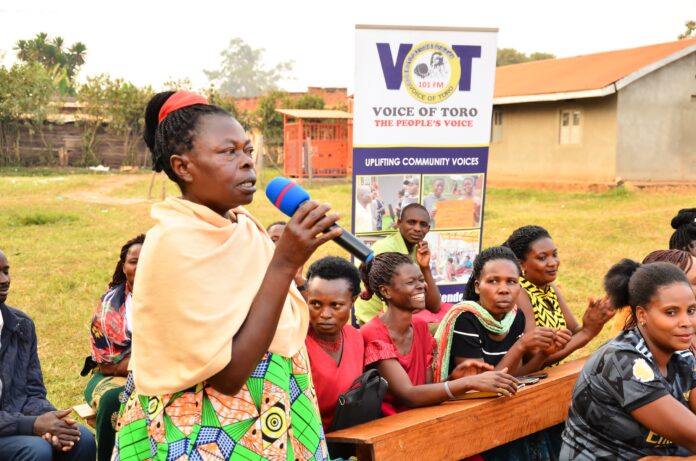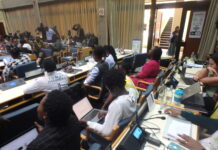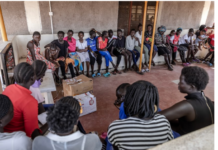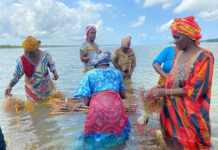By Hope Leontina
Fort Portal City, Uganda: Ms Betty Mujungu is the Gender Desk Team Leader at Voice of Toro located in Fort Portal City, Western Uganda. Before assuming this role, she held the position of Content Development and Creatives Team Leader at the same station.
The Gender Desk was established in 2020 amidst the COVID-19 pandemic to reach out to women and girls in a unique manner. It focused on creating radio programs and dedicated space for women and children to address the issues affecting them.
“During the COVID-19 lockdowns, studies and data findings highlighted a concerning increase in violence against women and girls. In response, we launched a dedicated women’s show titled ‘HER STORY.’ Through radio campaigns, we actively addressed and challenged the issue of abuse against women and children within homes. Our primary goal was to raise awareness on fostering peaceful coexistence between men and women during the challenging lockdown period.”
Ms Mujungu said another radio campaign on self-care, burnout, and mental health during the lockdown helped to address the stress, depression, and loss experienced by many individuals due to the pandemic, offering solutions through radio drama, program segments, news, and music.
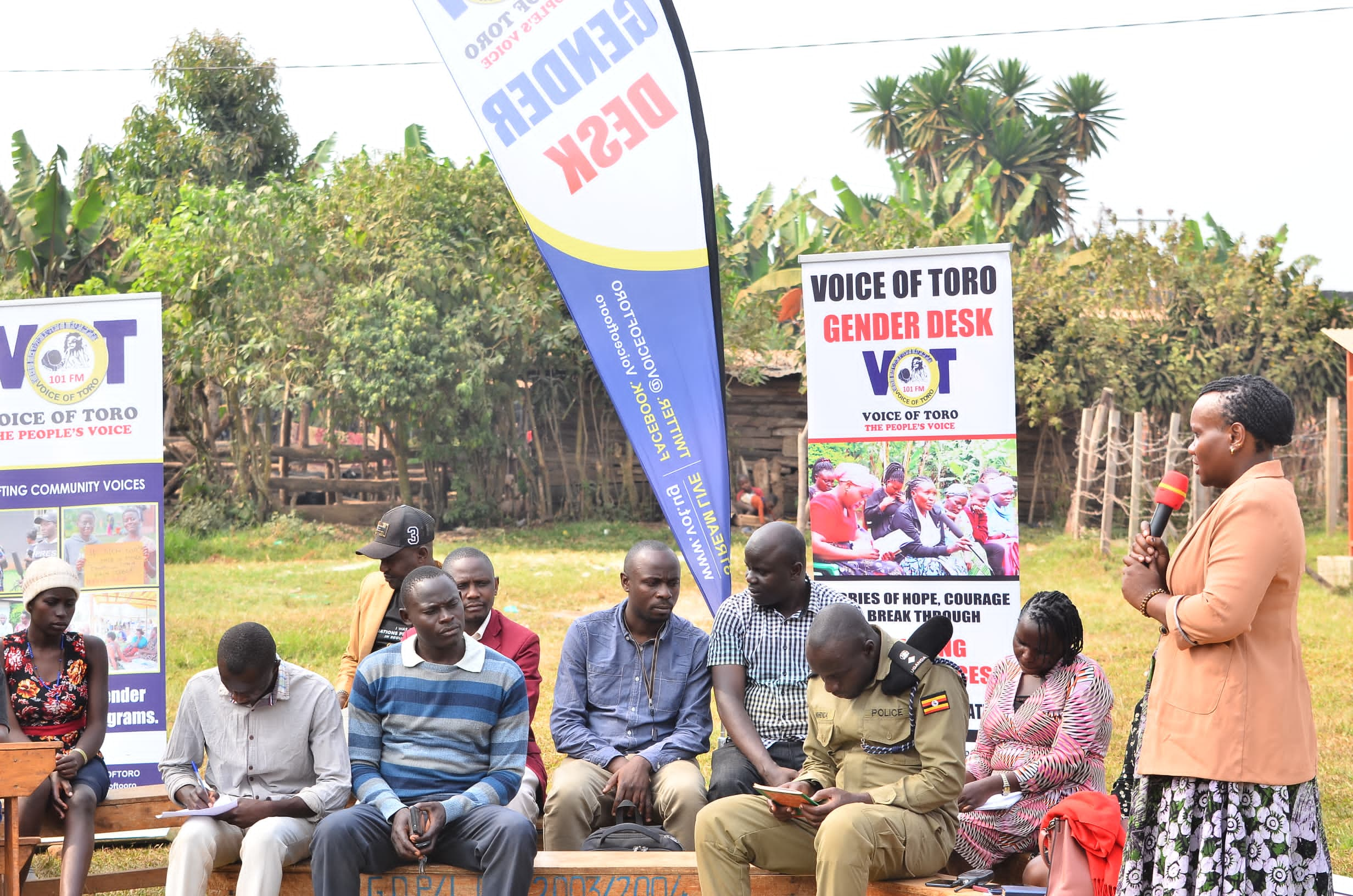
However, the impact of the COVID-19 lockdown was particularly felt among female journalists at Voice of Toro. There was a temporary downsizing of staff, assuming that female journalists and presenters faced challenges in commuting, such as walking long distances or riding bikes or motorcycles alone.
Ms Mujungu herself faced a temporary halt in her work, staying at home for 10 days while her co-presenter continued working, and at that time issues affecting women were less heard on the radio.
“When my absence from the radio was noticed for a week by the listeners, three individuals from the community took the initiative to organize a local crowdfunding effort for me. They successfully raised Shs 100,000 per week to cover fuel expenses, ensuring my participation in the morning show three times a week for approximately three months. Notably, two of these generous contributors were women who were keen on ensuring that the pressing issues affecting women remained in the spotlight and continued to be prioritized,”
Ms Mujungu sees this period as a turning point, where women in society began to appreciate the new programming addressing women’s issues and providing solutions.
“Throughout that period, I made my mobile number accessible for anyone to call and share their experiences. I guided them navigating various issues, including directing them on where to report or seek help.”
She said with the encouragement of friends, she later enrolled in an online course at the Kimmage Development Studies Centre in Dublin, Ireland, acquiring valuable skills in safeguarding and protecting children and vulnerable adults.
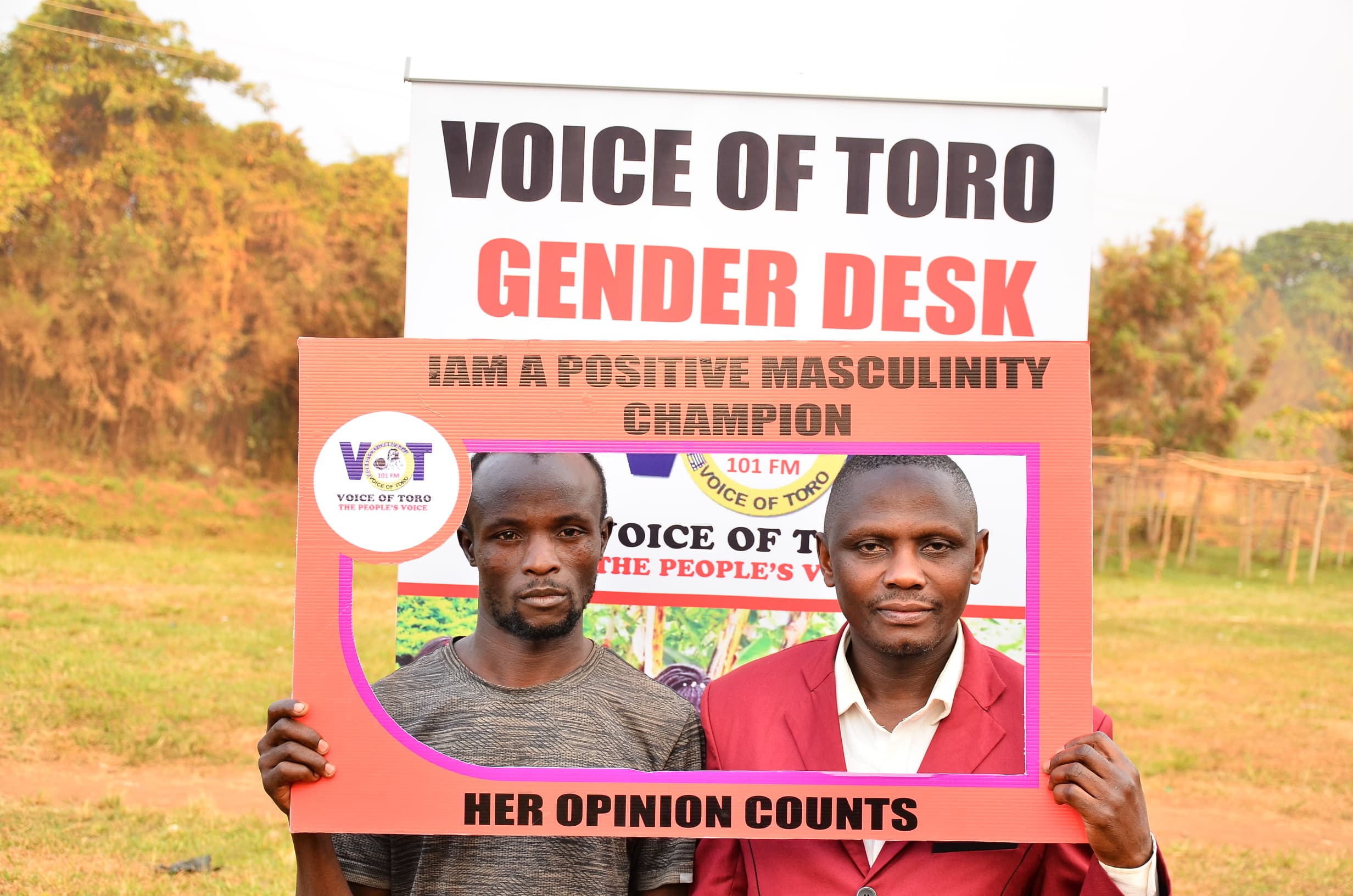
She said in the aftermath of the COVID-19 lockdown, the management of Voice of Toro Radio took proactive steps to address gender gaps that emerged during the lockdown, and the Human Resource Policy was revised.
The gender desk in collaboration with its partner media Focus on Africa, a separate Gender Policy and Sexual Harassment policies were developed to emphasize equality in every department.
“Our partner Media Focus on Africa supported us in establishing distinct Gender Policy and Sexual Harassment policies. These policies articulate our commitment to equality and were complemented by training on practical Gender-Sensitive Programming. Additionally, our partner assisted us in formulating a clear strategy to increase the representation of women as sources and storytellers for our talk shows and news segments, as well as engaging communities in advancing gender equality,” She said.
To sustain the initiatives of the gender desk, financial support was sought. In 2023, we successfully applied for a grant to establish a Gender Desk in media houses from the Graduate School of Media and Communications, Aga Khan University, and succeeded.
“For the period spanning September 2023 to December 2024, the Gender Desk at Voice of Toro is being supported by the Graduate School of Media and Communications (GSMC) at Aga Khan University in Nairobi. This support is part of their Advancing Gender Equality through Media and Civil Society project,’
She said the grant is enabling them to implement various activities focused on transforming gender norms, amplifying women’s voices, raising awareness about gender-based violence, engaging boys and men, and empowering women in leadership through community dialogues, storytelling, and radio drama.
Ms. Mujungu said the establishment of Gender Community Dialogues is now a vital platform in high gender-based violence (GBV)-prone communities in the western region and these dialogues have raised awareness of gender-related issues, providing a space for community members to voice their concerns.
“We facilitate Gender Community Dialogues, to raise awareness and practices related to gender issues in communities with high GBV prevalence in the western region. This platform has allowed community members to express their views on the raised issues and provides an interface with duty bearers and authorities. It is also serving as a form of open counseling, and guidance, and facilitates linkages and referrals,” she explained.
Ms Mujungu said during their various activities, including radio talk shows and gender community dialogues, they encourage open and candid feedback which gives them a chance to answer some questions and document stories of pain, resilience, and hope from women.
This platform has served as a valuable space for learning and unlearning, providing guidance, making referrals, and initiating the healing process.
On the use of radio drama skits, she said they opted for it because it is an effective tool for education and creating awareness of sexual and gender-based violence. The dramas are designed to open conversations and debates on topics considered secretive but abusive to women in communities.
It uses the elements of humor, satire, and suspense, to condemn gender-based violence, promote good morals, and advocate for gender justice in society.
“The drama unfolds the irony of life in a local setup, portraying the unbecoming behaviors of individual characters in the microcosmic depiction of Mukijuiga, representing the larger social setup. The play airs every Wednesday from 11:20 am to 12:00 pm, comprising 15 minutes of the play and 15 minutes of open feedback through calls and messages,” Ms Mujungu said.
She said their approach is an intentional blend of drama for social, economic, and mindset change to capture the audience’s mind and alter attitudes, behaviors, and actions.
“While we firmly believe in the power of radio for community mobilization and agenda setting, we recognize the necessity of collaboration in advancing gender equality. Therefore, we actively work with various actors and stakeholders such as local leaders, Police (Gender Desks, Family and Child Protection Units, and Community Liaison Officers), District Probation Officers, civil society organizations, individual gender activists, and duty bearers of all ages and abilities,” she said.
The pursuit of Sustainable Development Goal 5, which aims to achieve gender equality and empower all women and girls by 2030, is a commitment the VOT gender desk is actively contributing to.
“Voice of Toro proudly pioneers the first radio station with a dedicated Gender Desk, surpassing equal opportunities in newsrooms. We actively promote women’s engagement in sources, programming, and as subject matter specialists, mirroring the involvement of their male counterparts. Our commitment is to achieve genuine equality in all facets.”
What others said
Counsel Ruth Ongom, the Legal Coordinator of the International Justice Mission Fort Portal Office, emphasized the importance of enforcing existing laws to address gender-based violence. She highlighted the need for increased activities to raise awareness about the consequences of all forms of gender-based violence.
Counsel Ongom acknowledged that civil society organizations cannot achieve this alone and commended Voice of Toro for its intentional contribution to advancing gender equality in the region through the establishment of a specific Gender Desk.
She also proposed the development of a national policy to protect survivors and the severe punishment of domestic violence offenders.
Counsel Ongom urged the gender desk to mobilize communities and other civil society organizations to demand interventions aimed at improving access to education for girls, creating more income-generating opportunities for women, and enhancing the representation of women in all sectors, including leadership positions.
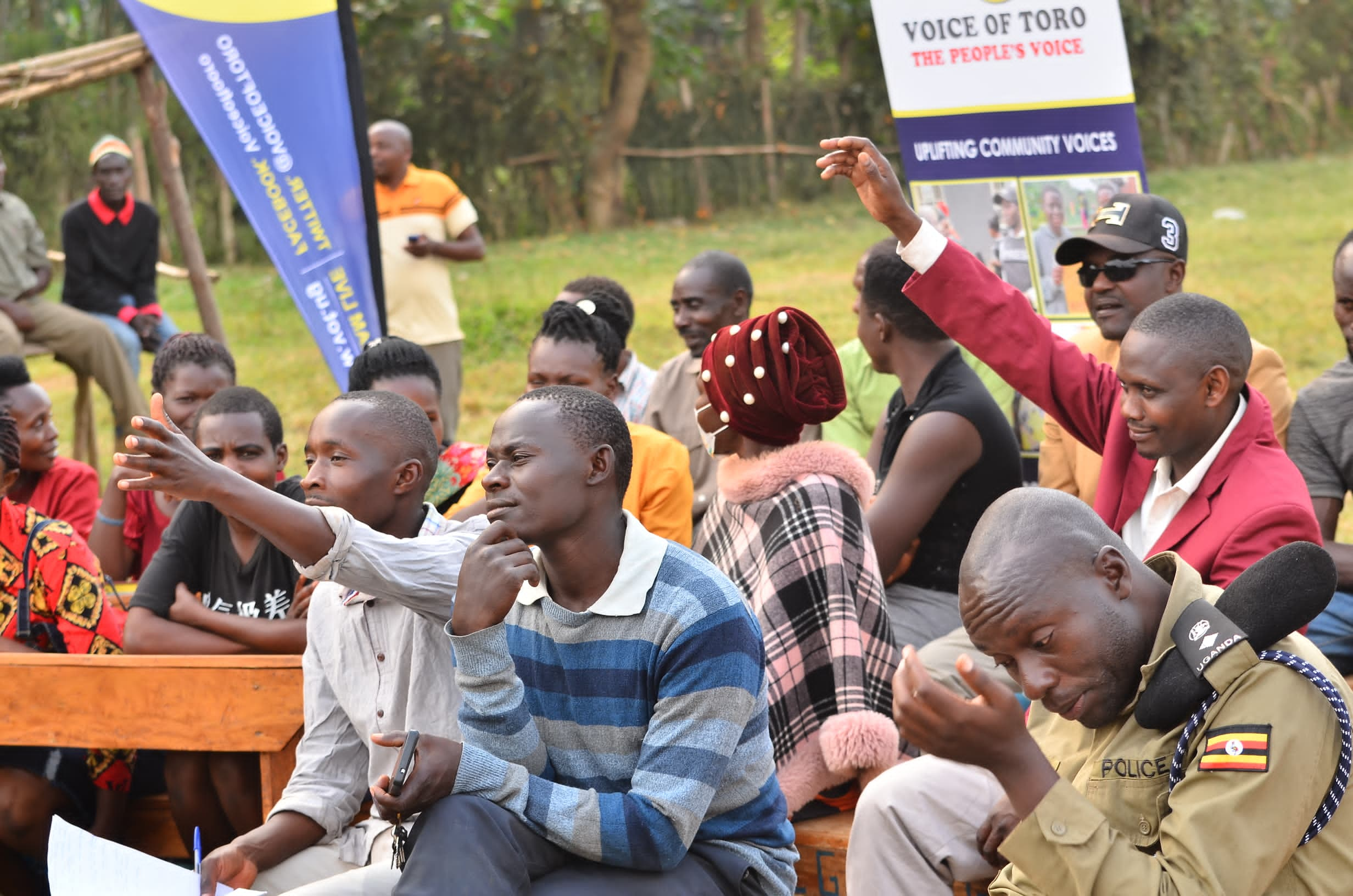
Ms Kabajwara Margaret, Female Youth Councilor and Secretary for Gender and Community-Based Services in Fort Portal City Council, expressed gratitude to the gender desk for complementing the local government’s efforts in the fight against gender-based violence.
She acknowledged the challenges faced by local governments due to small budgets, thanked Voice of Toro for contributing with its wide reach and coverage, and appreciated the “Engaro Ibiri Kunabisa Ngana” radio drama for effectively blending awareness messages with nutrition information and entertainment.
SP Patrick Muhenda, the Rwenzori West Region Community Liaison officer, said power imbalances within relationships are a significant factor contributing to domestic violence.
He emphasized the role of traditional cultural norms in perpetuating unequal power dynamics, often resulting in women bearing the brunt of such imbalances.
SP Muhenda praised the Voice of Toro Gender Desk for actively contributing to transforming toxic cultural and gender norms through platforms like Gender Community Dialogues and Radio Talk shows saying such platforms have provided both duty bearers and community members with opportunities to speak openly against gender-based violence.
Ms Muntu Margarete, village women chairperson and a catechist of a Catholic church in Katumba Village, Hakibale Sub-county, Kabarole District, commended the Gender Community Dialogues as a crucial initiative addressing various issues related to gender-based violence faced by women and girls in communities.
She requested more dialogues in their communities and emphasized the importance of involving children in these discussions to comprehensively address domestic violence.

